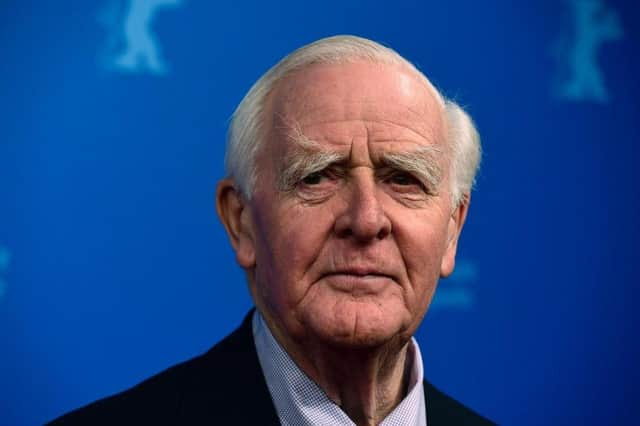Arts review of 2021: Allan Massie on the year in books


It has been a very long time since there was talk of the death of the novel. Happily writers and publishers paid no heed to the prophets of doom. Novels come like a river in spate, and this year many good ones came my way – too many to list here – so I offer those that most delighted and impressed me, with apologies to some of the absent.
To start, two very different Scottish ones, both excellent. First, Ewan Morrison’s How To Survive Everything is a dystopian novel, ingenious and convincing, made especially memorable by the speaking voice of the teenaged girl narrator. (Late in the year appeared Claire Tomalin’s Early Life of HG Wells, one of the first masters of this sort of novel. A generous man, Wells would have hailed Morrison as a brother.) Second, Andrew Greig’s Rose Nicolson, set in St Andrews, Edinburgh and the Borders in the years after the Reformation confirmed the impression made by his previous novel Fair Helen: Greig is the best writer of historical fiction now at work in Scotland. Rose Nicolson is in the class of John Buchan’s Witch Wood and if it doesn’t win next year’s Walter Scott Prize, anything judged better will surely be remarkable.
Advertisement
Hide AdNovels about other novelists – real life rather than imaginary ones – may not make an immediate appeal to many, but Colm Toibin’s Magician, a biographical novel about Thomas Mann, was intelligent and enthralling. Mann was one of the greatest novelists of the last century, his life broken in half by his opposition to Hitler and years of exile. Toibin does him justice, also his remarkable family.


If there is a better English-language short story writer today than Bernard MacLaverty, I haven’t happened on him or her. Reviewing his new collection, I said he was “a poet of loneliness, of people making do in hard times”. This may not sound delightful and often not a lot happens in these stories, but you might say the same of many of Chekhov’s. MacLaverty is in the same class, that is, the highest. He is as good as William Trevor and VS Pritchett, a master craftsman with a sympathetic eye.
Nobody could reasonably expect John Le Carré’s last novel Silverview to match his best work, now more than half a century old. But it has many of his characteristic virtues – at least two engaging characters and three or four splendid set scenes in which veteran spooks stir the embers of old fires.
There were two other veterans still on form. John Banville’s April in Spain is not as atmospheric as Snow, which first featured Inspector Strafford, but it is a nicely-worked tale and scenes in which he lifts the lid to explore the corruptions of Irish political life are splendid. Mario Vargas Llosa made considerable demands on his readers’ attention in Harsh Times, centring on the CIA-backed coup in Guatemala, now 70 years ago, but persevere, struggle to remember who is who, and you will find it as absorbing as the story is horrible.
Two other Scottish novels pleased me. Donald S Murray’s In a Veil of Mist, about a mysterious ship lying off Lewis in the Cold War years is admirably atmospheric and engaging. Graham Macrae Burnet’s Case Study is an accomplished and ingenious exploration of 1960s fashions in psychiatric medicine. Meanwhile Elizabeth Strout’s Oh William! was by some way the most enjoyable American novel to have come my way this year.


Alistair Moffat’s The Secret History of Here is a delightful year-long exploration of the place where he lives, its present and past. Moffat, always prolific, also wrote an enjoyable alternative history thriller about a German Occupation of wartime Britain – The Night Before Morning – what John Buchan would have called a “shocker” – which, like Greig’s Rose Nicolson, is set mostly in the Borders and St Andrews.
Advertisement
Hide AdI also enjoyed The Sins of GK Chesterton by Richard Ingrams, Paul O’Keefe’s Culloden, which is more about the aftermath of the battle than the brief encounter itself, and Joseph Farrell’s Duel, a history of duelling and the code of honour. It left me wondering if the corruption rife in politics today might not call for a revival of the duel.
A message from the Editor:
Thank you for reading this article. We're more reliant on your support than ever as the shift in consumer habits brought about by coronavirus impacts our advertisers.
If you haven't already, please consider supporting our trusted, fact-checked journalism by taking out a digital subscription at https://www.scotsman.com/subscriptions